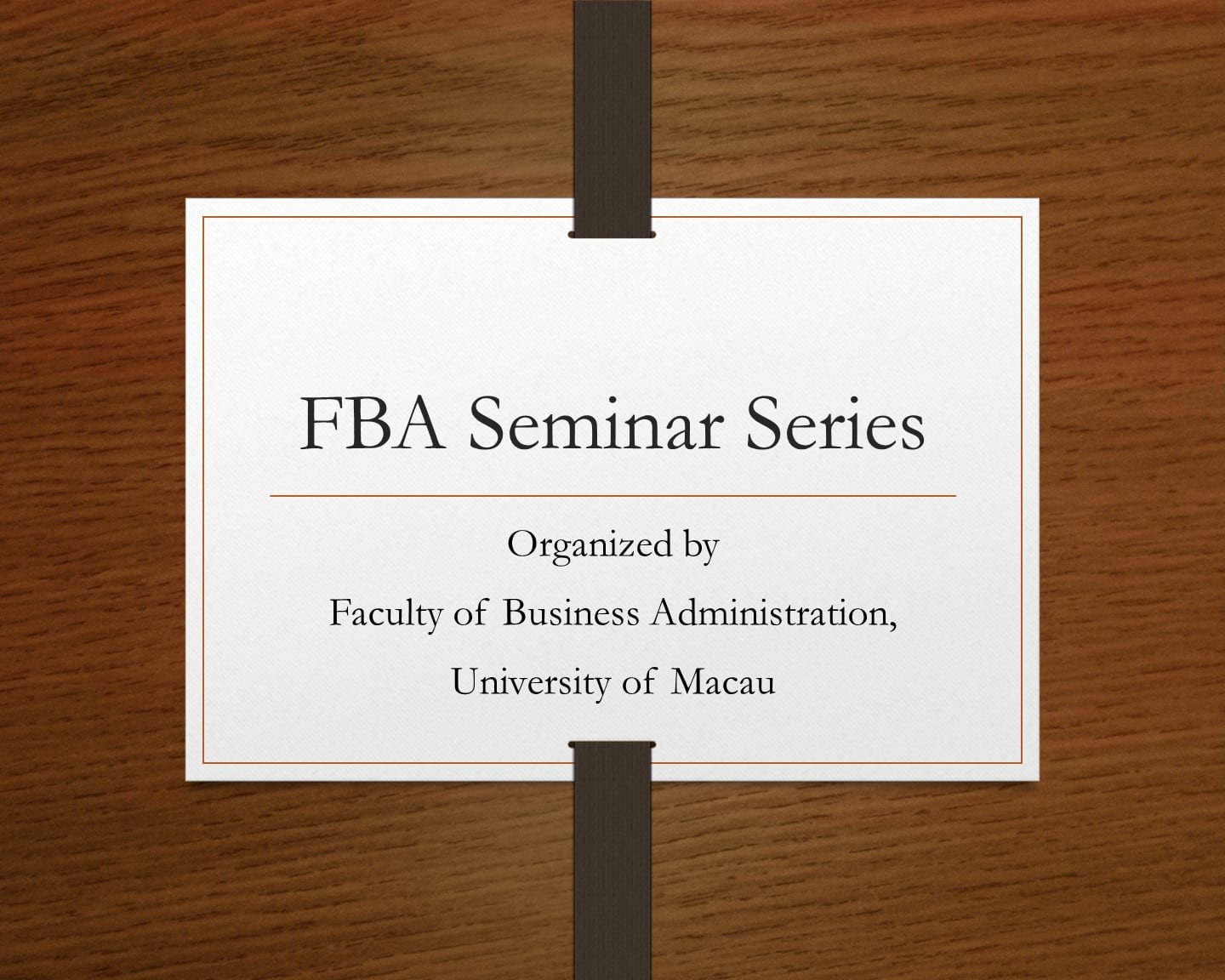Faculty of Business Administration
SEMINAR SERIES No.01/1718
Management
Why and When Employees Like Working with their Enemies? The Role of Machiavellianism in Unfavorable Leader-member Exchange Comparison Processes
Prof. Herman TSE
Associate Professor of Management
Department of Management, Monash Business School
Monash University
Abstract
Individuals are always sensitive to their relative status in different leader-member exchanges (LMXs) through the comparison of their own LMXs with those of others in workgroups. Little research, however, has examined whether or not one’s LMX is outperformed by another coworker will always influence one to have a negative perception and reaction to this coworker within a dyad. Drawing on social comparison and utility-affiliation theories and the research on Machiavellianism (Mach), we propose to test a moderated-mediation model uncovering why and when employees with high Mach can affiliate with their comparison target coworkers in unfavorable LMX comparison processes. Our results of social relations modelling revealed that a lower level of A’s LMX compared with a higher level of B’s LMX elicits A’s perception of status threat caused by B when Mach is high. We also found that A’s perceived status threat motivates him/her to engage in affiliative behaviors (i.e., seeking help from B and displaying impression-management toward B) when Mach is high. Furthermore, our results showed that the indirect effect of A’s perceived status threat is also significant when Mach is high. Finally, interpersonal help seeking and impression-management behaviors were found to be positively associated with individual-level job performance and supervisor-rated impression-management perception.
Date: 12 January, 2018 (Friday)
Time: 11:00~12:30
Venue: Faculty of Business Administration, E22-1002
A Short Biography of Prof. Herman TSE
Herman Tse is an Associate Professor in the Department of Management, Monash Business School, Monash University (AACSB, EQUIS and AMBA), Melbourne, Australia. He obtained his PhD from the University of Queensland, Brisbane Australia. Herman’s research interests include transformational leadership, leader-member exchange, emotions in teams and multilevel management issues. In recent years, his research has focused on studying the role of emotions in different types of interpersonal interactions among supervisors, subordinates and coworkers in work teams.
Herman’s work has appeared in internationally respected journals such as the Journal of Applied Psychology, the Leadership Quarterly, the Journal of Organisational Behaviour and the Human Resource Management. He has been on the editorial board of four journals including the Journal of Organizational Behavior, the Management Organization Review, the Journal of Business Research and the Group and Organisation Management.
ALL ARE WELCOME!


